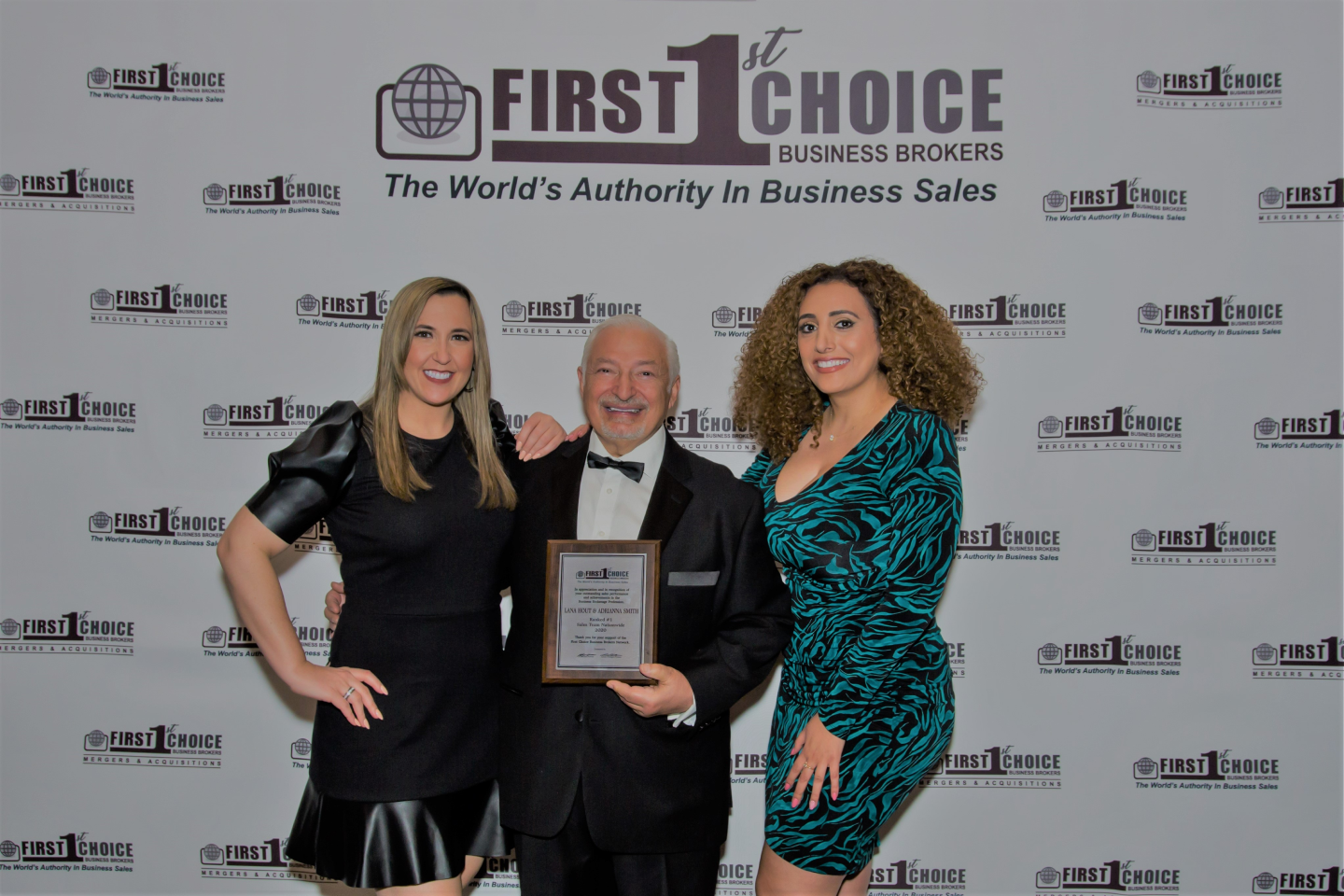Follow Us
Get in Touch
How to Prepare to Sell Your Business

Evaluating Your Business and Setting the Stage for Sale
Conducting a Business Valuation
When valuing a company for sale in Los Angeles, it's essential to conduct a comprehensive business assessment. Seek the guidance of a professional business valuator or a broker with a proven track record to ensure an accurate valuation. These experts utilize various methods, such as comparative market analysis and income and asset-based approaches, to establish a realistic asking price.
Business valuation is a pivotal step in the sales process as it anchors the fair market value and sets the stage for pricing. A well-conducted valuation not only reflects the current market trends but also safeguards against the potential undervaluation of your business.
Understanding the different valuation methods is crucial. Here's a brief overview of the approaches:
- Asset-Based Valuation: Focuses on the company's tangible and intangible assets.
- Income-Based Valuation: Estimates future cash flows and discounts them to present value.
- Market-Based Valuation: Compares your business to similar businesses that have recently sold.
Each method offers a unique perspective on the business's worth, and often, a combination of these approaches yields the most reliable estimate. It's important to understand the nuances of your business's category to align the valuation with industry standards.
Understanding Your Motivations for Selling
Before taking the leap to sell your business, it's crucial to introspect on your true motivations for initiating the sale. Whether it's the pursuit of new ventures, the desire for retirement, or a strategic financial move, understanding these reasons will guide your approach to the sale and help you communicate effectively with potential buyers.
- Retirement
- Pursuing new opportunities
- Financial goals
- Changes in personal circumstances
Reflecting on your personal and professional motivations can reveal the right timing and readiness for the sale. It's a process that requires honesty and clarity about what you hope to achieve post-sale.
It's also important to acknowledge the emotional aspects of selling. Selling a business is not just a financial transaction; it's a significant life event that can bring about feelings of uncertainty, fear, or even guilt. Recognizing these emotions and preparing for them can make the transition smoother for you and your team.
Setting Realistic Price Expectations
When preparing to sell your business, setting a realistic asking price is crucial for attracting serious buyers and facilitating a smooth negotiation process. Your asking price should be rooted in the tangible assets, growth potential, and profitability of your business. It's important to conduct thorough market research to align your expectations with current industry valuations.
Maintaining realistic price expectations is not just about finding any buyer—it's about finding the right buyer at the right price.
Consider the following factors when setting your price:
- Strategic value of your business
- Historical and projected financial performance
- Competitive advantages and market position
- Asset valuation, including intellectual property and physical assets
Base your minimum acceptable price on industry comps and construct a compelling case for your asking price. A well-substantiated price will foster trust and increase the likelihood of a mutually beneficial deal. Remember, the goal isn't just to sell, but to sell at a price that reflects the true value of your enterprise.
Preparing Essential Documentation
Before engaging with potential buyers, it's crucial to have all your business documentation in order. Organizing and presenting clear, accurate information can prevent delays and provide buyers with the necessary insights into your business operations and legal standing.
Essential documents include financial records, legal agreements, and operational data. Here's a list to help you start:
- Financial statements (profit and loss, balance sheets, cash flow) for the past 3-5 years
- Tax returns and audited financial statements, if available
- Articles of incorporation and other business formation documents
- Business licenses, employment agreements, and property leases or deeds
- Inventory lists and supplier/distributor contacts
Ensuring that these documents are comprehensive and up-to-date will reflect the business's financial health and performance, as well as its compliance with legal requirements.
Remember, the specific documents required may vary depending on your business type. It's advisable to consult with a professional to ensure that you have all the necessary paperwork prepared for a smooth transition to the new owner.
Optimizing Business Operations Prior to Sale
Ensuring Operational Efficiency
To attract potential buyers, it's crucial to demonstrate that your business operates like a well-oiled machine. Streamlining your business processes is essential for showcasing a company that can easily adapt to new ownership. This involves evaluating and refining your workflows, customer service protocols, and supply chain management to ensure they are as efficient as possible.
By presenting a business with optimized operations, you signal to buyers that the enterprise is capable of maintaining performance and profitability during and after the transition.
Ensure that all operational records are meticulously compiled and organized. This includes:
- Employee contracts and handbooks
- Vendor and customer agreements
- Detailed documentation of key processes
- Inventory management systems
- Marketing strategies
These records should be current, valid, and transferable, which will instill confidence in prospective buyers about the sustainability and scalability of the business. A detailed operational manual that outlines business processes, roles, and responsibilities will not only aid in the sale but also provide a smooth handover to the new owner.
Maintaining Confidentiality During the Sale Process
Maintaining confidentiality during the sale of your business will prevent a multitude of potential issues. Breaches can lead to employee unrest, customer loss, and a tarnished reputation, which can significantly devalue your business. To safeguard against these risks, implement strict confidentiality protocols.
A need-to-know policy for only those directly involved in the sale process and who need to be privy to sensitive information. Non-disclosure agreements (NDAs) serve as a legal safeguard, binding parties to secrecy even if the deal falls through.
Here are some steps to ensure confidentiality:
- Vet potential buyers thoroughly before revealing sensitive information.
- Use NDAs to legally bind all parties to confidentiality.
- Train staff in discretion, especially those aware of the sale's details.
- Market your business cautiously, revealing only enough to attract interest without disclosing its identity.
Remember, confidentiality is not just a protective measure; it's an integral part of your sale strategy. Ensuring it is protected is as valuable as the business itself.
Addressing Legal and Compliance Issues
Before listing your business for sale, it's crucial to address any legal and compliance issues that could deter potential buyers or complicate the sale process. Begin with a comprehensive review of all legal documents to ensure they are current and in order. This includes articles of incorporation, bylaws, operating agreements, and contracts with vendors, suppliers, or partners.
- Regulatory Approvals: Verify that your business has all necessary licenses, permits, and registrations, and that you comply with industry-specific regulations.
- Intellectual Property: Organize and protect intellectual property assets such as trademarks, copyrights, patents, or trade secrets.
- Legal Disputes: Resolve any outstanding legal disputes or compliance issues to prevent last-minute deal breakers.
Ensuring that your business is legally sound and compliant not only increases its marketability but also provides peace of mind to prospective buyers, demonstrating that the business is a safe and sound investment.
Professional assistance can be invaluable in navigating the complexities of legal and compliance matters. Consider consulting with legal counsel to scrutinize elements such as representations, warranties, indemnifications, and other provisions that could affect your liability post-sale. Document all steps taken to address these issues, as this transparency will be appreciated by buyers and can smooth the path to a successful sale.
Preparing Your Team for Transition
As you prepare to sell your business, it's crucial to ensure that your team is ready for the upcoming changes. Open communication is key; inform your team about the sale and the reasons behind it. This transparency helps to alleviate uncertainty and prepares them for the transition, maintaining a sense of stability within the company.
- Discuss the potential impact of the sale on their positions.
- Provide reassurance about the future, highlighting any positive aspects.
- Offer support and resources to help them adapt to new management.
A well trained and prepared team is an asset during the sale process, showcasing the business's resilience and adaptability to potential buyers.
Remember, the way you handle the transition can significantly affect employee morale and, by extension, the business's performance during the sale period. It's important to address any concerns promptly and to ensure that key personnel are on board with the change. This will not only help in retaining talent but also in presenting a united front to prospective buyers.
| Year | Profitability Increase | Projected Growth |
|---|---|---|
| 2018 | 8% | 10% |
| 2019 | 9% | 10% |
| 2020 | 10% | 10% |
| 2021 | 12% | 10% |
| 2022 | 11% | 10% |
This table not only shows a history of growth but also sets expectations for the future, which can be a compelling argument for buyers. Additionally, discussing operational efficiencies and how they contribute to scalability can further underscore the business's potential. Efficient operations suggest a business that can adapt and grow, which is a key selling point.
Marketing Your Business for a Successful Sale
Creating a Compelling Sales Narrative
A compelling sales narrative attracts potential buyers and sets your business apart from the competition. Craft a story that highlights your business's unique value proposition, growth potential, and market positioning. This narrative should not only focus on past successes but also on the future opportunities that await the new owner.
Your sales narrative should be a blend of factual data and persuasive storytelling, designed to engage and motivate buyers.
Consider the following elements when developing your sales narrative:
- The inception and evolution of your business
- Key milestones and achievements
- Unique selling points and competitive advantages
- Financial highlights and growth trends
- Testimonials and success stories from customers or clients
Remember, the goal is to create a narrative that resonates with potential buyers and persuades them to envision themselves as the successful next owner of your business.
Leveraging Online Platforms and Networks
In today's digital age, leveraging online platforms and networks is a critical step in marketing your business for sale. Platforms like Flippa offer a global universe of potential buyers, including acquisition entrepreneurs, professional investors, and institutional buyers. By utilizing Flippa's AI matching, sellers can connect with over 100,000 buyers on a weekly basis.
When listing your business for sale, consider the reach of your marketing efforts. Flippa's network marketing extends to email campaigns with over 500,000 contacts, push notifications, and syndication to partner platforms, ensuring your business gets the visibility it deserves.
Creating a marketing strategy that attracts qualified buyers is essential. The Flippa Advisory team suggests a multi-faceted approach, which may include:
- Developing a compelling sales pitch
- Deal-by-deal promotion and email marketing
- Establishing direct relationships with institutional buyers
Remember, the goal is to optimize your reach and opportunity, making your business an attractive proposition for the right buyer.
Engaging with Potential Buyers
Engaging with potential buyers is a critical step in the sales process. Build demand and interest by showcasing the unique aspects of your business and inviting preferred buyers to view your profile. It's essential to establish trust and rapport, as you're not just selling an asset but also potentially entering into a relationship with the buyer.
- Identify buyers who align with your business values and future plans.
- Prioritize and reach out to potential buyers to initiate negotiations.
- Respond to offers judiciously, verifying buyer credibility and establishing trust.
When engaging with potential buyers, remember that transparency and active communication are key. Your engagement with the listing and the interactions with buyers can significantly influence their interest and the eventual success of the sale.
Los Angeles business brokers often emphasize the importance of a strategic approach to engaging with buyers. By carefully selecting who to invite for discussions and how to present your business, you can navigate negotiations with confidence and respond to the right offers, ensuring a successful sale.
Handling Offers and Negotiations
When the time comes to sell my business in Los Angeles, handling offers and negotiations is a critical step. It's not just about responding to the right offers, but also about understanding the nuances of negotiation strategies and tactics.
Set clear objectives for the sale, including desired price and terms, to guide your negotiations effectively.
Flexibility can be your greatest asset during this phase. Be open to alternative proposals and recognize areas where concessions can be made without undermining the overall value of the deal. This adaptability can significantly increase the chances of finding common ground with potential buyers.
- Respond to offers after verifying buyer credibility.
- Establish trust and build rapport with potential buyers.
- Maintain a strategic approach, with clear objectives and thorough preparation.
- Stay flexible and open to win-win solutions.
- Seek professional advice to navigate complex negotiations.
Remember, effective negotiation is not just about the numbers; it's about aligning the buyer's vision with the potential of your business. By entering negotiations with a deep understanding of what buyers value, you can craft persuasive arguments that highlight the unique strengths of your business and pave the way for a successful sale.
Navigating the Emotional and Practical Aspects of Selling
Managing Emotional Attachment and Expectations
Selling your business is not just a financial transaction; it's a deeply personal one. The emotional ties you have to your company can cloud your judgment and lead to seller's remorse. When you acknowledge these feelings and manage them effectively you will experience a smooth sales process.
- Recognize and address common emotional responses, such as guilt or fear of the unknown.
- Build rapport and trust with potential buyers to foster a positive relationship.
- Engage professional advisors early to help navigate the emotional landscape.
By preparing for the emotional aspects of selling your business, you can make strategic decisions that align with your goals and values.
Remember, it's natural to feel a sense of loss or uncertainty. However, focusing on the future and the opportunities that lie ahead can help mitigate these emotions. Transitioning out of your business is a significant step, and it's important to approach it with a clear mind and a plan for what comes next.
Understanding the Buyer's Perspective
When preparing to sell your business, it's crucial to step into the shoes of potential buyers. Understanding their motivations and concerns is key to a successful negotiation. Buyers are not just investing in the current state of your business; they are looking at its future potential and how it aligns with their expertise and growth plans.
Buyers seek transparency and honesty about the business's past, including any mistakes made, as this provides them with a clearer picture of what to expect and how to steer the business forward.
By actively listening and building rapport, you create a foundation of trust. This trust is essential for open communication, which can lead to more productive negotiations and a mutually beneficial agreement. Remember, effective negotiation is not solely about the numbers; it's about finding a win-win solution that aligns your business's potential with the buyer's aspirations.
Here are some key points to consider when understanding the buyer's perspective:
- Forge a foundation of trust and open communication.
- Engage in active listening to understand the buyer's motivations and concerns.
- Be transparent about the business's history and potential future challenges.
- Highlight how the business's potential aligns with the buyer's expertise and growth plans.
- Prepare to address questions about why you are selling a profitable business.
The Role of Professional Advisors
Engaging professional advisors is a critical step in the journey of selling your business. Their expertise can be the difference between a successful sale and a challenging experience. Advisors such as accountants, attorneys, and business brokers bring a wealth of knowledge to the table, ensuring that every aspect of the sale is handled with precision and care.
- Accountants will organize and review your financial records, providing clarity and transparency.
- Attorneys will address legal and regulatory compliance, mitigating potential issues during due diligence.
- Business brokers or intermediaries will guide you through the sales process, from marketing to negotiations.
Engaging professional advisors early can significantly impact the outcome of the sale, offering peace of mind and a strategic advantage. Their involvement ensures that you are prepared for every step, from initial valuation to the final handover.
Closing the Deal and Ensuring a Smooth Handover
Successfully closing the deal is a pivotal moment in the sale of your business. Ensure all closing documents are in order and that any third-party consents have been obtained. This is the final step where the ownership is officially transferred to the buyer, and it's crucial that all legal and financial obligations are meticulously addressed.
The transition period is equally important as the sale itself. It's a time to transfer knowledge, processes, and relationships to the new owner, ensuring they are well-equipped to continue the business's success.
During the handover, it's beneficial to have a structured approach:
- Review and finalize the Sales Agreement, ensuring it reflects the terms agreed upon in the Letter of Intent (LOI).
- Provide the buyer with a detailed operational manual, which includes business processes, roles, and responsibilities.
- Assist in the transfer of employees, customers, suppliers, and other key stakeholders to the new management.
- Offer guidance and oversight during the transition period, as agreed upon with the buyer.
Remember, a smooth handover can significantly influence the buyer's ability to succeed, which reflects back on your reputation as a seller. It's in your best interest to support a seamless transition.
Frequently Asked Questions
-
What are the key steps in preparing my business for sale?
Key steps include conducting a business valuation, setting realistic price expectations, organizing financial records, ensuring operational efficiency, addressing legal and compliance issues, and preparing your team for the transition.
-
How important is confidentiality during the sale process?
Maintaining confidentiality is crucial as it protects the business's interests, prevents disruptions, and ensures that employees, customers, and competitors are not unsettled by the sale news before the deal is finalized.
-
What kind of documentation do I need to prepare for due diligence?
You should prepare comprehensive documentation including financial statements, tax records, legal contracts, intellectual property documentation, and operational manuals to facilitate the due diligence process for potential buyers.
-
How can I showcase my business's profitability and growth potential to buyers?
Organize and present clear financial records that highlight consistent profitability, provide evidence of growth potential, and create a compelling narrative that demonstrates the value and future prospects of your business.
-
What role do professional advisors play in selling my business?
Professional advisors such as accountants, lawyers, and business brokers can provide expertise in valuation, legal matters, financial structuring, and can help navigate the complexities of the sale process, ensuring a smooth transaction.
-
How do I handle the emotional aspects of selling my business?
Selling a business can be emotionally challenging. It's important to manage your attachment and expectations, understand the buyer's perspective, and seek support from advisors or peers who have gone through the process.
Recent articles for you



First Choice Business Brokers Los Angeles
Navigation Links
Want to receive new business listing alerts by email?
The World's Authority in Business Sales
© 2024 First Choice Business Brokers Los Angeles | Each office is independently owned and operated. | Privacy Policy


